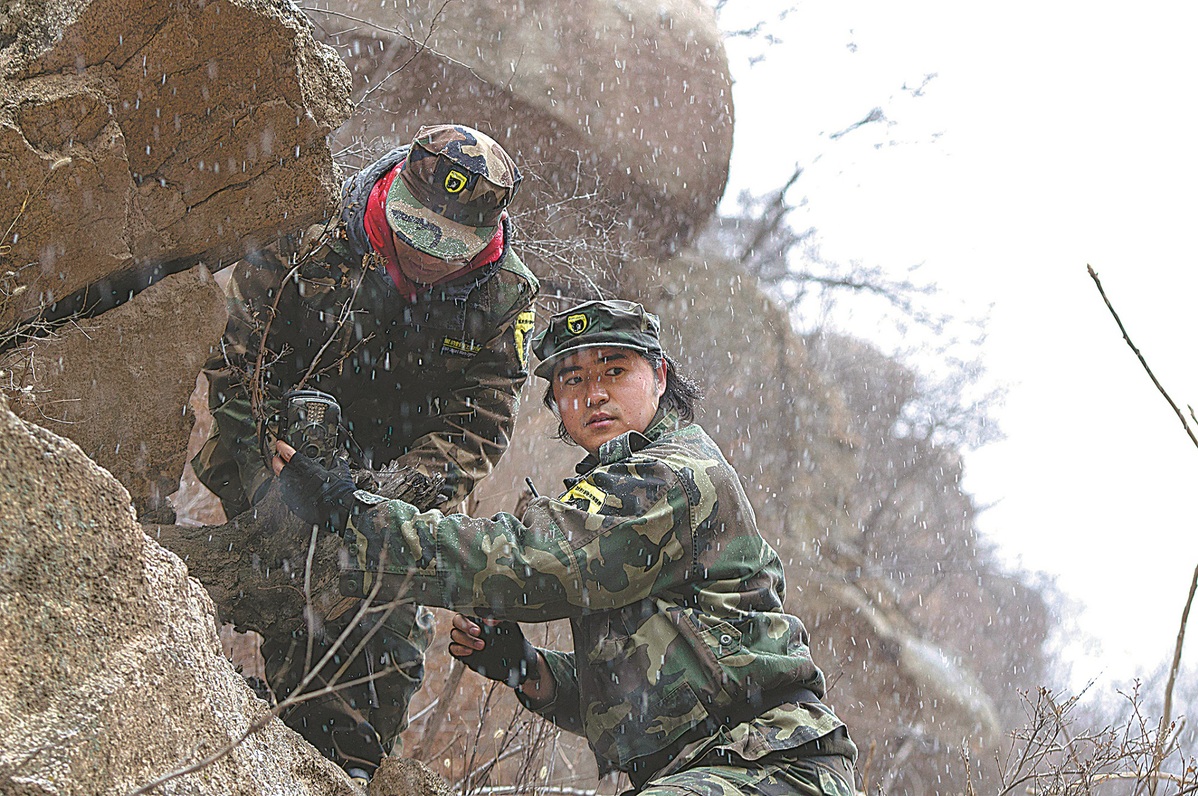On long trip, flying friends well protected


Troublemaker animals
Yet local people may not be especially fond of black storks at first. Li recalled that a fish farmer asked for his help sometime before 2008 because the birds kept preying on his fancy carp, even though he lit firecrackers in an attempt to drive them away.
Li told him to increase the height of the fish pool's brick walls and get the level of water in it to rise to at least 80 centimeters. He did, and stopped losing his fish to the birds.
Li and his team also spend a lot of time on preventing other wild animals, such as vultures and boars, from wrecking livestock and crop plants.
Every year migrating vultures come to stay in mountains on the outskirts of Beijing for two months around Spring Festival and attack local people's goats.
They scare goats, which are grazing on the cliff and not being watched by a shepherd, by diving suddenly toward them and prey on those falling off the cliff, Li said.
As a result, Li asks visiting friends and others to bring intestines of chicken and fish as well as rotten meat for his team to put in places away from the goats, so that the vultures will leave the goats in peace.
Also, in springs and autumns for the past eight years, Black Leopard workers have gone to a remote village nestled in mountains in Hebei to help prevent boars from ravaging villagers' crop fields.
Boars began to pose a serious issue more than 10 years ago, Zhao Chunjiang, 51, an official of the village, said.
The animals come to the village every year and destroy farmland, most of which is planted with corn, Zhao said.
Villagers have to bang a gong and watch out for several hours at night to keep the boars away. "If we left them alone, there would be nothing left to harvest," Zhao said. But the boars keep coming back.
Li and his teammates have developed several methods to tackle the problem. They patrol the mountains and have hung laser disks that deflect sunlight and down the tree branches to disrupt the boars' vision.
Li's friends working in zoos mailed him excrement of North China leopards, which feed on boars, and Li placed it in the crop fields. The team has also used a loudspeaker and played recordings of wolf howling aggressively, and have hung towels and cloth in the fields after soaking them in peppermint soap.
Such methods work temporarily but fail to root out the problem, Zhao said.
As destructive as boars can be, it is illegal to hunt them, except for a small number of people who are on government-approved hunting activities, which are mostly carried out by hunting teams.
One reason is that boars are on the list of terrestrial wild animals that are "helpful or of value" and protected by the State, though they were removed from a draft revision of the list that the National Forestry and Grassland Administration issued in December to solicit public opinions.
"The boars are breeding too quickly,"Zhao said. "They don't have a natural enemy in our region."
But for Li, the wildlife protector, change may be on the way. The increase in boar numbers may attract wild North China leopards to the region from a nearby nature reserve in Hebei, thus keeping the number of the boars in check, he said.
Then the big cats may move further across the terrain and enter into the neighboring wilderness of Beijing, where they were last seen in the 1980s, if they find enough boars, roe deer or gorals to feed on in the capital's forests, Li said.
The introduction of the leopards will further improve biodiversity in Beijing and make it "very sound and healthy", he said, adding that humans and wildlife can and should coexist.
























